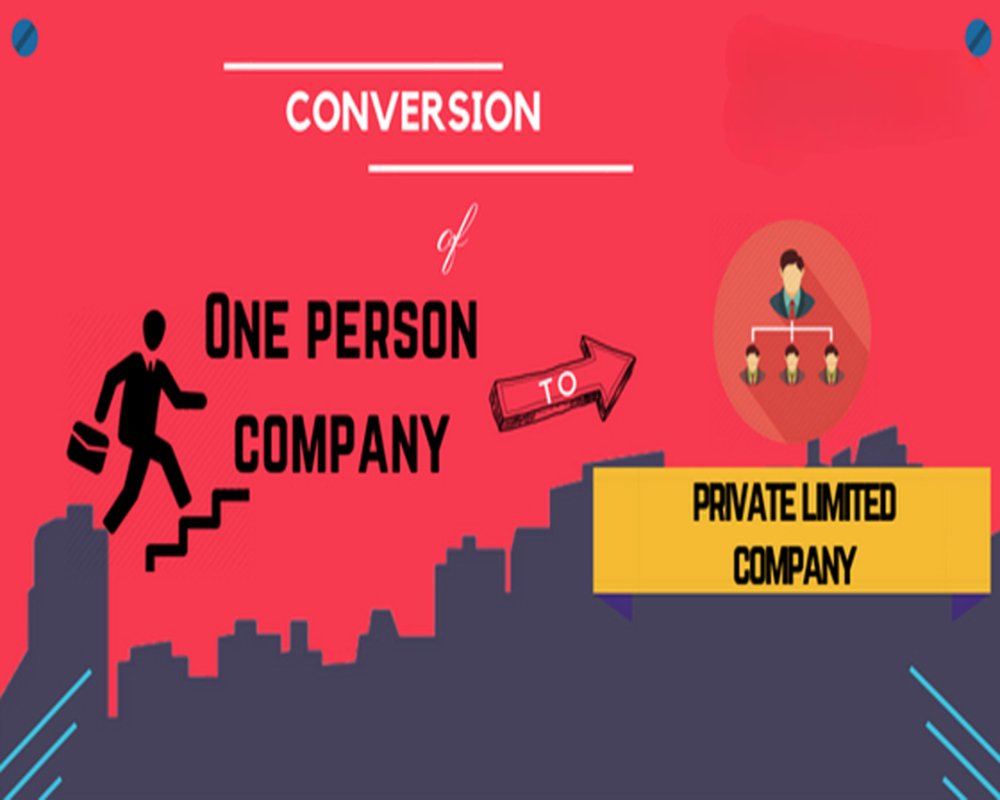Introduction
A One Person Company (OPC) is a suitable business structure for individual entrepreneurs looking to start a company with limited liability and simplified compliance. However, as the business grows in scale and complexity, the limitations of an OPC structure may begin to hinder expansion and operational flexibility. Recognizing this, the Companies Act, 2013 lays down provisions for the mandatory and voluntary conversion of an OPC into a Private Limited Company. The need for such conversion arises from both statutory triggers and practical business considerations. This article explores the various factors that necessitate the conversion of an OPC into a private limited company.
Statutory Thresholds for Mandatory Conversion
As per Rule 6 of the Companies (Incorporation) Rules, 2014, an OPC is mandatorily required to convert into a private limited company if:
- Its paid-up share capital exceeds ₹50 lakh, or
- Its annual turnover exceeds ₹2 crore for three consecutive financial years.
This provision ensures that OPCs remain suitable for small businesses, and that larger enterprises operate under more regulated and transparent corporate structures suitable for multi-stakeholder management.
Expansion of Ownership and Investment Opportunities
An OPC is restricted to a single member and cannot raise equity capital from multiple investors or issue shares to the public. When a business seeks to bring in new partners, investors, or co-founders, conversion into a private limited company becomes necessary. The private limited structure permits multiple shareholders and helps attract private equity, venture capital, or strategic investors.
Need for Enhanced Governance and Professionalism
As a business grows, it may require a more structured board, diversified management, and formal decision-making processes. A private limited company offers a more developed governance framework, allowing for the appointment of multiple directors, formation of committees, and better checks and balances in administration.
Improved Access to Loans and Institutional Funding
While OPCs can avail bank loans, lenders and financial institutions may prefer to fund companies with broader ownership and more formal structures. A private limited company provides better transparency, audited financial statements, and a diversified board—factors that increase the confidence of institutional creditors.
Wider Business Network and Recognition
Many corporates and government departments prefer or mandate working with private limited companies due to their structured operations and compliance records. Converting an OPC into a private limited company improves brand image, facilitates bigger contracts, and opens new doors for national and international business relationships.
Operational Flexibility and Scale
A private limited company offers more operational and strategic flexibility than an OPC. It allows for employee stock options (ESOPs), easier delegation of authority, and faster expansion into new markets or product lines. These advantages make it better suited for medium to large-scale enterprises that have outgrown the single-owner model.
Regulatory Alignment with Growth
As businesses evolve, aligning with higher standards of corporate compliance becomes essential. Private limited companies must hold board meetings, maintain statutory registers, and follow reporting obligations. While these may seem demanding, they improve internal accountability and help in regulatory audits, investor due diligence, and legal protection.
Voluntary Conversion for Strategic Objectives
Even if the turnover or capital threshold is not crossed, a founder may choose to voluntarily convert an OPC into a private limited company after completing two years of incorporation. This flexibility allows the business to restructure itself in line with changing strategic objectives such as mergers, acquisitions, or expansion into new verticals.
Conclusion
The need to convert an OPC into a private limited company arises from both regulatory requirements and practical business needs. While OPCs are ideal for individual-led startups and small businesses, a growing enterprise often demands a more versatile, credible, and scalable structure. Converting to a private limited company offers greater access to capital, wider ownership, operational flexibility, and long-term sustainability. Entrepreneurs must evaluate the timing and implications of such conversion to support their growth trajectory and business goals effectively.
Hashtags
#OPCtoPrivateLimited #BusinessGrowth #CompanyConversion #Entrepreneurship #PrivateLimitedCompany #BusinessExpansion #LegalStructure #StartupJourney #BusinessStrategy #LimitedLiability #CorporateStructure #SmallBusiness #BusinessDevelopment #EntrepreneurLife #CompanyFormation #FinancialFlexibility #InvestmentOpportunities #BusinessSuccess #Compliance #FutureGrowth


0 Comments